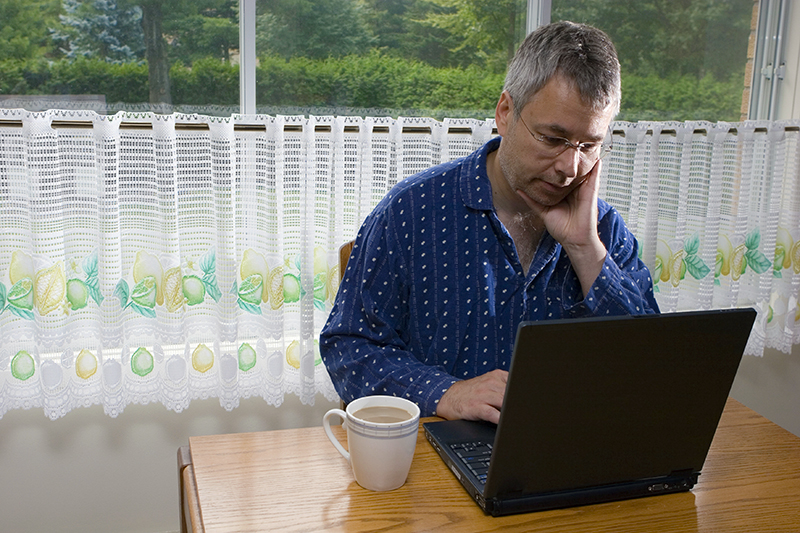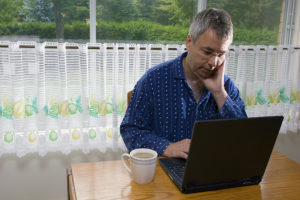
 You can participate in a web-based seminar — or webinar — from the privacy of your home. Join either live or view the archived version within a few days of the live webinar (in most cases). All webinars listed are free. All times listed are Pacific Time. Here are webinars that may be of interest to those living with Parkinson’s in February 2019…
You can participate in a web-based seminar — or webinar — from the privacy of your home. Join either live or view the archived version within a few days of the live webinar (in most cases). All webinars listed are free. All times listed are Pacific Time. Here are webinars that may be of interest to those living with Parkinson’s in February 2019…
Tuesday, February 19, 10:00-11:00am
“Ask the Expert Webinar: Self-Management as Self-Care”
Program: Self-management refers to the tasks that an individual must undertake to live well with one or more chronic health conditions. These tasks include gaining confidence to deal with medical management, role management, and emotional management. Our presenter will give us an introduction to self-management, and how learning these skills can improve your quality of life with Parkinson’s – today, and in the future.
Presenter: John A. Murphy, coordinator, Self-Management BC
Presented by: Parkinson Society British Columbia
Wednesday, February 20, 9:00-10:00am
“Genetics of Parkinson’s Disease”
Program: Dr. Farrer will present his research into the genetics of Parkinson’s disease. How he got started and his academic influences, and what he hoped the outcome would be. Along the way he had many adventures, in many parts of the world, and he’s been humbled by the resilience and generosity of so many families … from working in North America, to Northern Europe, Norway, Sweden and the Faroes, to tracing the Phoenicians to Carthage, Tunisia, to working in Taiwan and the South Pacific. He will elaborate on the molecular discoveries made, and the subsequent mouse models and neuroscientific discoveries, and how these discoveries have led to some ongoing therapeutic trials.
Presenter: Matthew Farrer, PhD, Department of Medical Genetics, University of British Columbia
Presented by: Parkinson Society Southwestern Ontario
Wednesday, February 20, 11:00am-12:00pm
“Spread of Effects of LSVT LOUD: More than an Increased Loudness”
Program: You may be aware that LSVT LOUD results in a louder voice, but did you also know that research has documented a spread of effects into other areas of communication as well? Join LSVT LOUD Expert Clinicians as they present research demonstrating improvements in articulation, facial expression, swallowing, neural imaging and other areas related to the speech motor system. Participants will walk away with an understanding that loudness can be a key to unlocking improvements in overall communication!
Presenters: LSVT Clinicians
Presented by: LSVT Global
Thursday, February 21, 9:00-10:00am
“Beyond Medication: Deep Brain Stimulation and Focused Ultrasound for Parkinson’s”
Program: Surgical options deep brain stimulation and the more recently approved focused ultrasound can help manage Parkinson’s symptoms, but these procedures are not for everyone. Our panelists will discuss who should consider these treatments and when, and what someone may expect after the surgery.
Presenters: To be advised at time of webcast
Presented by: The Michael J. Fox Foundation for Parkinson’s Research
Wednesday, February 27, 3:00-4:00pm
“Treating PSP, MSA and CBD – What can be done?”
Program: Stanford University and Brain Support Network are co-hosting
a webinar on treating progressive supranuclear palsy (PSP), multiple system atrophy (MSA), and corticobasal degeneration (CBD). Those coping with advanced Parkinson’s or Lewy body dementia may find some aspects of the webinar helpful. Among the topics to be covered:
- What symptoms of these disorders are amenable to improvement?
Can physical therapy, occupational therapy, exercise and assistive devices help? - What about eye movement training?
- What about botox?
- What are some eating and drinking strategies?
- How can you ask your neurologist about these treatments?
- Presenters: Brent Bluett, DO, movement disorders specialist, Stanford Movement Disorders Center. Director, Stanford Center of Excellence for Progressive Supranuclear Palsy.
Sharon Reichardt Walker, whose late husband Den had PSP, which was confirmed through brain donation. Sharon serves on the Board of Brain Support Network and leads the Bay Area MSA caregiver support group.
Presented by Stanford Movement Disorders Center and Brain Support Network
Archived webinars-link will be provided once presentation has been posted